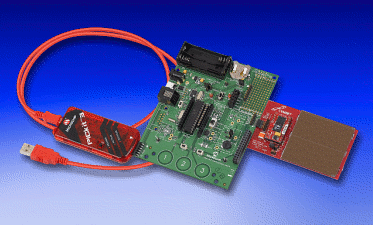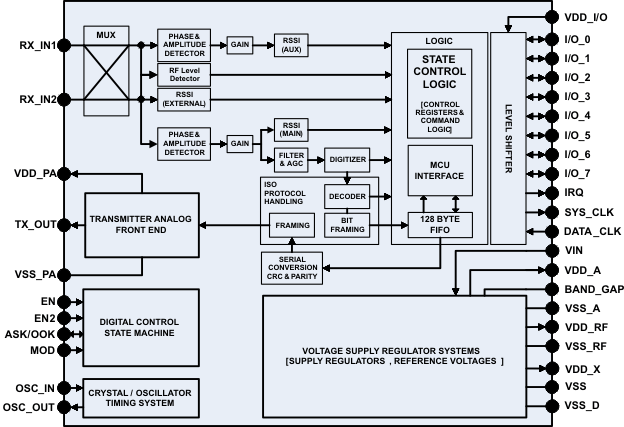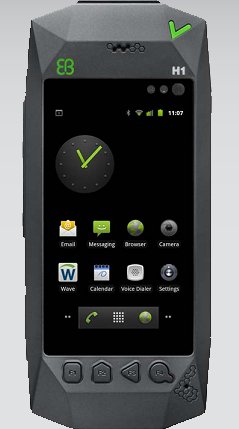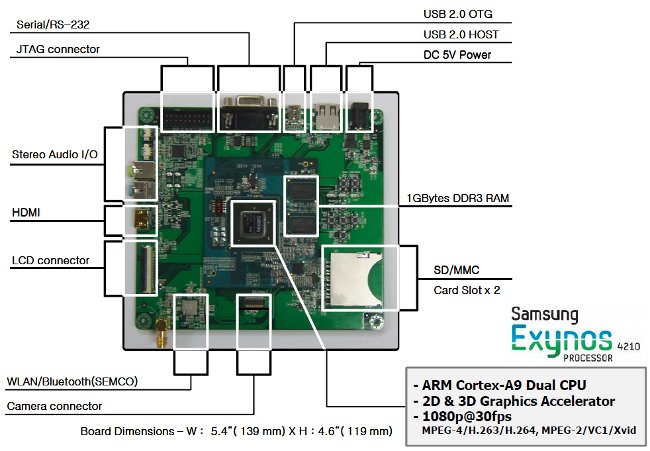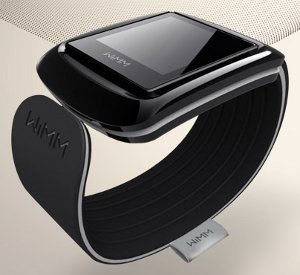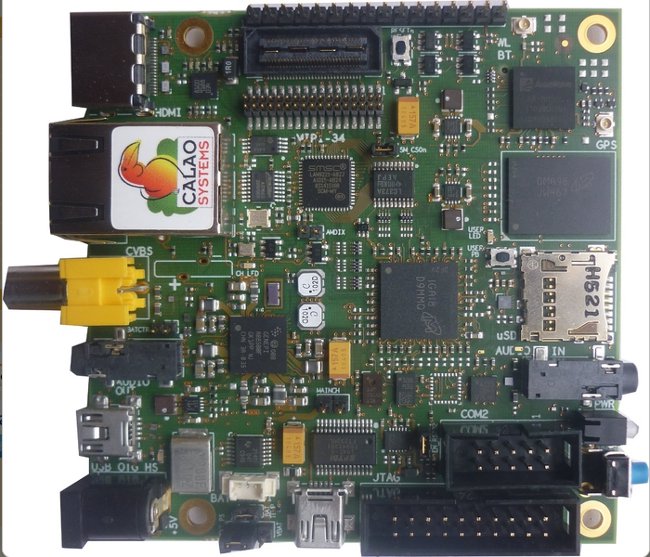Advantech announced the PCM-C3500 Series single board computers (SBC) powered by TI OMAP3503 or OMAP3530 processors with 128 to 256 MB SDRAM and 1 to 2 GB Flash (optional) . These heatsink-free boards are targeted for various low-power applications in industrial control, HMI/kiosk, medical, and portable applications.The boards will run Windows CE 6.0 (default), Embedded Linux 2.6 and Android 2.2. Here are the specifications for PCM-C3500 SBC: CPU – PCM-C3530: TI OMAP3530 @ 600 MHz / PCM-C3503: TI OMAP3503 @ 600 MHz DSP – Built-in 430-MHz TMS320C64x+™ DSP Core (PCM-C3530 only) 2D/3D Accelerators – OpenGLES 1.1 and 2.0, OpenVG1.0 (PCM-C3530 only) OS – WinCE6.0 English professional version as default, and Linux DRAM – PCM-C3530: 256 MB, PCM-C3503: 128 MB (Optional: 256 MB) Onboard Flash – PCM-C3530: Default 2 GB, (Optional: 0 GB, 1 GB) /PCM-C3503: Default 0 GB, (Optional: 1 GB, 2 GB) RTC Watchdog Power Management – Standard, idle […]
LinuxCon 2011 Presentation: Embedded Systems
The fourth presentation entitled “Embedded Systems” was presented by Tim Harder, developer at OSUOSL (Oregon State University Open Source Lab) on the 16th of August 2011 at LinuxCon 2011. Abstract: This presentation deals with software development for Embedded Systems especially focusing on Linux and open source. It describes current software development challenges such as fast software life cycle and memory footprint issues, lists several open hardware projects (Beagleboard, Pandaboard, Bug Labs, Gumstix), microcontrollers (Arduino and TI MSP430), different operating systems (Android, Meego) and toolchain build tools (Buildroot, Yocto) for embedded systems. It also explains specific challenges to embedded software development such a the numerous number of hardware platforms and software & hardware tools. Finally, it deals with the cross-compilers, emulators (e.g. qemu) and debugging tools (gdb, jtag, serial console, etc…). If you want to download the presentation slides, please go to Embedded Systems and use the download button on top of […]
Energy Harvesting Development Kit by Microchip Technology
The XLP 16-bit Energy Harvesting Development Kit is a development platform for realizing energy harvesting applications powered by Microchip nanoWatt XLP PIC MCUs which are suited for low power applications with sleep currents down to 20nA, active mode currents down to 50uA/MHz, code execution efficiency, and multiple wake-up sources. The power for the kit is supplied by Cymbet’s EVAL-08 Solar Energy Harvester which features a solar panel suitable for use with indoor or outdoor light. The XLP kit enables rapid prototyping of low power applications such as RF sensors, temperature/environmental sensors, utility meters, remote controls, security sensors and more. For software development and programming, the kit includes the PICkit 3 programmer/debugger for use with the Microchip’s free MPLAB™ Integrated Development Environment. Microchip also provides XLP 16-bit Energy Harvesting RF Demo Code in C language (The file is a Windows Executable, but it’s just an executable compressed file so it can […]
Texas Instruments TRF7970A NFC Transceiver
Texas Instruments has introduced the TRF7970A NFC Transceiver ” speeds designs with easy-to-configure software that helps developers bring peer-to-peer, ultra-low-power capabilities to more applications”. Here’s an excerpt from the press release: Raising the standard for ultra-low-power near field communication (NFC) devices, Texas Instruments Incorporated (TI) (NYSE: TXN) today announced the industry’s lowest power contactless short-range communication transceiver. Ideal for infrastructure devices, the new TRF7970A extends battery life up to 2 times longer than competitive products, as it provides eight selectable power modes ranging from <1 uA in power-down mode to 120 mA in full-power mode. The transceiver comes with easy-to-configure software to help developers get started quickly. Royalty-free stacks are compatible across a broad range of ultra-low-power MSP microcontrollers. Additionally, developers are able to directly access all control registers, allowing for easy fine-tuning of various parameters for the highest performance in every application. You can also read the complete TRF7970A […]
OMAP3 / OMAP4 Based Android Reference Designs for Smartphones and Tablets
Elektrobit (EB) announced their Specialized Device Platform (SDP), a reference design based on the Android operating system, targeted to Public Safety, Security and Defense, sectors with stringent compliance and regulatory requirements. The platform consists of form factor hardware that can be tailored to customer requirements. The current SDP has a TI OMAP 3 application processor, a high resolution touch-screen enabled display, Wi-Fi, Bluetooth, GPS, 2G and 3G modems – LTE for Band 14 being an option and runs Android 2.2 (Froyo). A version with TI OMAP 4 processor running Android 2.3 (Gingerbread) will be available in H1 2012. Linux Angstrom will also be provided for the platforms. Here are the details specifications of both reference platforms: OMAP3xxx ARM Cortex-A8 core up to 1 GHz ARM TrustZone compatible security engine NEON™ SIMD coprocessor POWERVR™ SGX graphics accelerator TMS320C64x+™ DSP up to 600 MHz OMAP4xxx Dual ARM Cortex-A9 cores up to 1.5 […]
Low Cost Development Board Samsung Origen based on Exynos 4210
Late May, Samsung and Linaro announced Samsung Origen, a low cost development board (199 USD) based on Samsung Exynos 4210, that will use Linaro software and related development tools. This development board is mainly targeted for the development of products such as tablets, smartbooks, IVI, smartphone and other consumer products. Here are the technical details of the board: Cortex-A9 1.0 GHz Dual Core & NEON with leading GHz ARM Technology Samsung Exynos 4210 Advanced Low Power 45nm Application Processor Lower-BOM cost access to Exynos4210 processor with 1GB DDR3 RAM Multimedia Core with H/W Multi Format Codec provides 1080p@30fps HDMI, LCD / Touch screen support, WLAN/Bluetooth and camera. Extreme 3D Graphics Performance accelerated by Mali400 MP4. Wider Memory Bandwidth for Smartphone and Tablet Scenario. Richer Peripherals & High Speed Interface for system: 8ch I2C, HDMI, SATA, PCI Express, USB 2.0 HOST/OTG, 2x SD/MMC Card Slot Debugging Interfaces: JTAG, Serial/RS-232 port Dimensions: […]
Wearable Android Development Kit
WIMM Labs recently announced a wearable Android-based reference platform and software development kit designed for mobile, sports, health, fashion, finance and consumer electronics applications. The WIMM One platform feature a 1.4″ Bi-modal display, a capacitive touch screen, Wi-Fi, Bluetooth, an accelerometer, a magnetometer, audible and tactile alerts, up to 32GB memory. It is water-resistant, its dimensions are 32×36×12.5mm and it only weights 22g. Wimm Labs also said the device supports GPS in their twitter account. The platform is not currently available, but will be in Q3 2011. The price would be between 200 USD and 2000 USD depending on the licensee according to Wimm Twitter account, with the Wimm One Developer Preview platform closer to the lower end which still makes it a relatively pricey platform. Wimm Labs will also launch a store for applications and accessories later this Fall, where people will be able to find, purchase, and install […]
Calao Snowball Development Boards Are now Available
Earlier in February, ST Ericsson had announced the availability of development boards running Linaro based on their Nova A9500 processor. 4 different development kits based on this platform can now be purchased online on Calao store: SKY-S9500-ULP-C22 (SNOWBALL SDK LITE – Without WLAN/BT/GPS) – 155.73 Euros SKY-S9500-ULP-C32 (SNOWBALL PDK LITE – Without WLAN/BT/GPS) – 226.22 Euros SKY-S9500-ULP-C12 (SNOWBALL SDK) – 164.59 Euros SKY-S9500-ULP-C02 (SNOWBALL PDK) – 241.47 Euros The differences between the SDK (Software Development Kit) and PDK (Production Development Kit) are that the former has no expansion connectors, no battery backup for RTC and only support serial over USB port (for Linux console). Finally, the PDK has a larger e-MMC (8GB vs. 4GB). The price mentioned above exclude VAT (if applicable) and shipping costs. Please note that the boards can be shipped to many countries but not anywhere worldwide (e.g. Shipping is not available to Thailand) and you’ll need to […]




